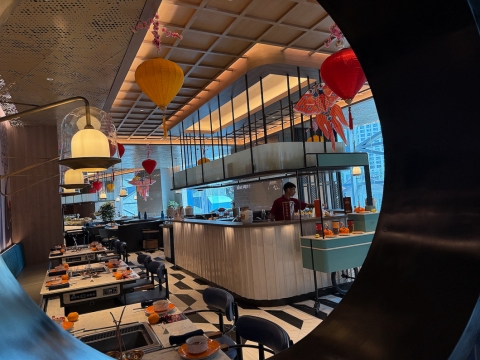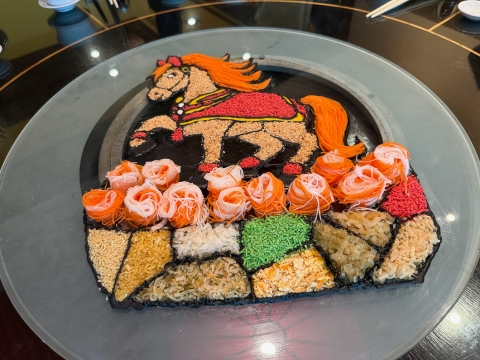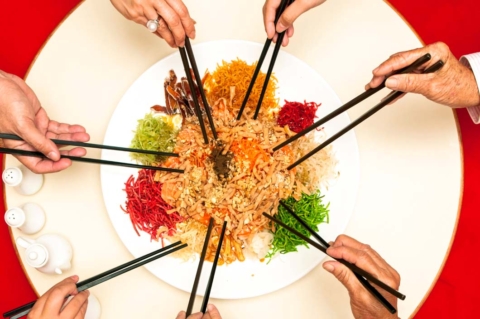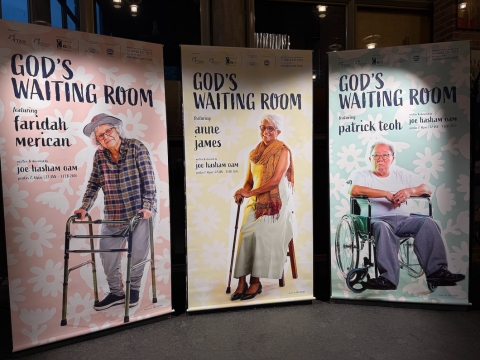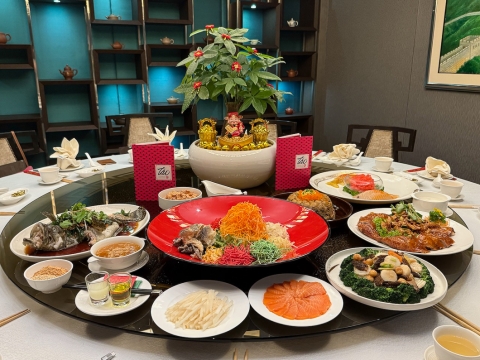Chinese New Year is celebrated in a big way here in Malaysia. As with any festival, there are plenty of to-dos prior to the actual day, and also lots of musts and also no-nos. Curious? Read ahead!
Before Chinese New Year
To celebrate Chinese New Year, the house will get a spring clean. Spring cleaning before the Lunar New Year is not just for the practical reasons of ridding our homes of old furniture and trash. For the Chinese, this also signifies clearing the home of bad luck.
The Chinese believe that only by getting rid of the old and the bad can one invite in the new and good fortune. This usually takes place a few days before the first day of Chinese New Year.
Hanging up the decorations will be the next step after spring cleaning. Red paper cuttings with lucky animals, and with auspicious words and poems are pasted around the walls of the house. Red and golden lanterns are also displayed in the house, and sometimes hung in pairs outside the main door to bring in good luck.
Lucky food
Families eat certain dishes during Chinese New Year for their symbolic meaning. They serve lucky food during the 15-day festival season, especially on New Year’s Eve, which is believed to bring good luck for the coming year. Lucky food to eat are:
- Tangerine or mandarin orange 柑 (gan) sounds like ‘gold’. Who wouldn’t want more gold?
- Glutinous Rice Cake 年糕 (nian gao) sounds like it means ‘getting higher year after year’. This implies children’s height, rise in business, promotion at work, better grades in studies etc.
- Fish 鱼 (yu) sounds like it means ‘surplus’. Us Chinese like to have a surplus left at the end of the year because they think if they managed to save something at the end of the year, then they can make more next year.
- Longevity Noodles 长寿面 (chang shou mian) unsurprisingly symbolise a wish for longevity. The noodles are longer than normal and should not be cut or trimmed to represent the eater’s life!
- Spring Roll 春卷 (chun juan), the crispy golden fried rolls symbolise bars of gold.
- Sweet Glutinous Rice Balls 汤圆 (tang yuan) which are small, delightfully gummy rice balls, made with glutinous-rice, flour and water, are served as symbols of togetherness and family reunion.

Reunion dinner
The reunion dinner is not just about the food. It’s also about gathering and catching up with family members, relatives, and close friends, many of whom we only get to meet once a year. Reunion dinner is so important that some people will fly back to have it with their family even if they live far away. Reunion dinner normally happens on the eve of Chinese New Year, however, in modern day this could happen any time during the 15 days festive season.
Bai nian or visiting friends and family
Visiting relatives’ and friends’ houses is important during this festive season. This is to wish them a good year ahead. The people who go bai nian will normally bring some gifts (most common will be mandarin oranges – in even numbers PLEASE. As the Chinese say: all good things come in pairs). The host will return some gifts as a way of returning the blessings. Grandparents and parents are normally visited on the first and second days of Chinese New Year.

Ang pow or red packets
Ang pow or red packets contain money and are usually given to babies, children or unmarried relatives and friends. The working single people will also give ang pow to their elderly parents and grandparents as blessings. People normally place new notes in ang pow or red packets as symbols of new good fortune. Now, how much to put in an ang pow? Find out here!
Chinese New Year taboos
There is quite a number of taboos on the first day of Chinese New Year. Here are some:
- Rice porridge – do no eat porridge as this symbolises poverty.
- Hair washing – do not wash your hair as this will wash away your wealth.
- Sweeping the floor – do not sweep the floor as this will sweep away all your wealth and fortune. If you need to do it, just sweep inward to the house.
- Unlucky words – do not speak of any unlucky word. Like death, accident etc. as they may come true.
- Crying – no crying as it brings bad luck.
- Borrowing money – avoid borrowing money as this will lead to a debt the whole year.
- Scissors or knives – avoid using scissor or knife as quarrels and disputes will be inevitable all year round.
- Sleep – do not sleep during the day time as this will make you lazy and lethargic for the rest of the year.
- Clothes – wear new clothes! This symbolises a new beginning. Time for shopping!
The Chinese New Year taboos list can go on and on, but the above are the most common ones. Whether this is true or superstition, I don’t know. However, it always comes back to the old saying “better to be safe than sorry”. It is up to the individual to believe or not. How about you?





